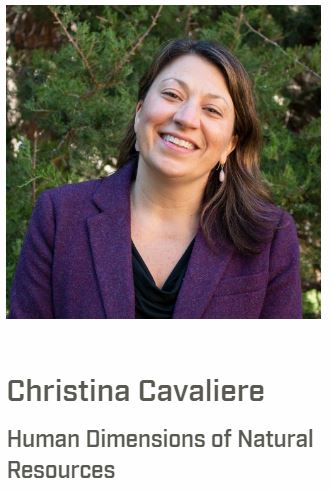Neolocalism and Tourism
Much tourism depends on distinctive sense of place, but market forces often favour lookalike franchises over more distinctive local businesses. Dr. Christina Cavaliere has co-edited a new multi-author book that makes the case for neolocalism, a movement through which businesses can help destinations retain and deepen their identities, and which also supports Covid recovery. Here, she summarizes the book’s contents.
Neolocalism: A New Way to Enhance Sense of Place
The tourism system relies heavily on sustained biocultural diversity and uniqueness of place. We often travel to experience other places, other cultures, and other ways of knowing. This diversity and uniqueness are at constant risk of extinction from increasing global pressures such as overtourism, inadequate planning, corporate control, economic greed, hegemony, and unequal distribution of power.
During the Covid-19 pandemic many small and medium enterprises have faced challenges with restrictions, closings, and financial hardships. Conversely, many large corporations have been able to remain open, having the financial wherewithal to withstand the downturn. This increases the threats of homogenization and corporate domination as small businesses and communities continue to struggle.
Tourism Thrives on Neolocalism and Biocultural Conservation
The term “neolocalism” was born from the study of place. As related to the tourism system it can be defined as a conscious effort by businesses to foster a sense of place based on attributes of their community. An emphasis on local production, distribution, and consumption can link people to landscapes and contribute to a deeper understanding of sense of place. That in turn supports local enterprises and local identity.
Neolocal tourism examples include aspects of festivals, arts, transportation, governance, migration, identity, food, agritourism, and heritage. Dining out, visiting farmers’ markets, sampling breweries and wineries, and participating in agritourism activities can enhance a sense of place and provide enticing narratives that attract tourists. Neolocalism also focuses on consumer promotion of local interests such as the “buy local” movement.
The new book, Neolocalism and Tourism: Understanding a Global Movement, edited by Drs Linda J. Ingram, Susan L. Slocum and Christina T. Cavaliere, presents case studies by international authors that explore neolocalism as related to tourism management. Along with theoretical contributions, definitions, and ideological discussions throughout the book, several authors offer insights regarding tourism and neolocalism with nine case studies from around the world.
> For example, one chapter explores neolocalism as a strategy for addressing tourism issues in rural Iceland in terms of place-making, cultural revitalization, and conservation of local wildlife.
> Another case study focuses on Bangkok, Thailand, and examines the relationship between neolocalism and transportation as a conduit for biocultural conservation of the Saen-Sab Khlong, a primary city canal.
> New narratives of place relating to neolocalism and heritage-based tourism are the focus of another chapter, including the story of Ned Kelly, a 19th-century Australian bushranger turned outlaw.
These examples help unpack the various considerations and impacts of linking tourism and neolocalism in different geographical and cultural contexts. They demonstrate how the complexity within neolocalism includes planning, interpretation, implementation, and long-term viability.
By featuring a range of destinations and forms of neolocalism, the case studies can initiate a deeper look at equity and power structures within communities, so as to provide tourism opportunities for local and foreign visitors and, most important, benefits for the hosts.
The Importance of Neolocalism for Destinations
Neolocalism is about both participation in and resistance to the dominant culture. Neolocalism has the potential to appropriate and re-appropriate power, to circumvent top-down governance and corporate interests. It can serve as one way to recalibrate local governance to include equitable and inclusive decision-making from multiple stakeholders. It is also about the possibilities for a new type of “growth” that includes diverse cultures.
A final chapter then looks at governance as related to neolocalism in terms of the guiding the creative process. Effective governance requires input from private and public partners working together to implement the best practices for their unique situations. With discussions about food, beverages, festivals, and shopping, it is easy to dismiss neolocal tourism development as just another fad. Instead, the authors emphasize the need for rigorous policy and planning in neolocal tourism development. That will help avoid overtourism and unsustainable growth while supporting local enterprise and promoting biocultural conservation. Synergies between neolocalism and tourism can improve understanding of the complexities of sustainability through increased community involvement, helping to enhance local autonomy and local sourcing.
The book aims to call us, as a global community, to question more deeply the notions of biocultural conservation, the contentions between localism and globalisation, community-based decision making, entrepreneurship, and approaches to tourism management. We need innovation in economic structures, community resilience, and new approaches to governance – even more so in the post-pandemic recovery.
References:
Boluk, K.A., Cavaliere, C.T., and Duffy, L.N. (2019) A pedagogical framework for the development of the critical tourism citizen, Journal of Sustainable Tourism, 27(7), 865-881.
Cavaliere, C.T. (2017) Foodscapes as alternate ways of knowing: Advancing sustainability and climate consciousness through tactile space, in S.L. Slocum and C. Kline (eds.), Linking Urban and Rural Tourism: Strategies for Sustainability, Oxfordshire: CABI, pp. 49-64.
Ingram, L.J., Slocum, S.L., & Cavaliere, C. T. (Eds.). (2020). Neolocalism and tourism: Understanding a global movement. Goodfellows Publishers. DOI: 10.23912/9781911635604-4287
|


